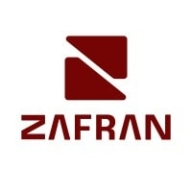


Tenable Nessus and Microsoft Defender for Cloud both compete in the realm of cybersecurity solutions, with specific focuses on vulnerability management and threat protection. While Tenable Nessus holds a notable advantage in terms of comprehensive scanning capabilities and detailed reports, Microsoft Defender for Cloud excels in integration within Microsoft's ecosystem and its multi-cloud support.
Features: Tenable Nessus stands out for its extensive vulnerability scanning across varied platforms, predictive prioritization which aids in effective risk management, and robust reporting features that simplify complex data. Microsoft Defender for Cloud is notable for its seamless integration with Azure services, comprehensive threat protection, and strong compliance features that cater well to multi-cloud environments within Microsoft's ecosystem.
Room for Improvement: Tenable Nessus could enhance its integration with public cloud services, improve user-friendly reporting features, and expand scanning capabilities to include applications more extensively. Microsoft Defender for Cloud needs improved user interface consistency and alignment of security recommendations with real-world scenarios, along with a less complex pricing model for smaller enterprises.
Ease of Deployment and Customer Service: Tenable Nessus offers users a straightforward setup, primarily in on-premises or hybrid settings, with generally supportive customer service despite variable response times. Microsoft Defender for Cloud has a seamless integration advantage for Azure-centric environments, yet its support service can face delays due to its complex infrastructure.
Pricing and ROI: Tenable Nessus is competitive with its transparent pricing, often seen as affordable given its feature richness and unlimited IP scanning. Users report high ROI through enhanced vulnerability management. Microsoft Defender for Cloud, while offering valuable security integration, has a complex pricing model that can be costly for smaller enterprises, impacting perceived value despite generally positive assessments of its security improvements.
| Product | Market Share (%) |
|---|---|
| Tenable Nessus | 7.3% |
| Microsoft Defender for Cloud | 5.1% |
| Zafran Security | 1.0% |
| Other | 86.6% |



| Company Size | Count |
|---|---|
| Small Business | 26 |
| Midsize Enterprise | 7 |
| Large Enterprise | 45 |
| Company Size | Count |
|---|---|
| Small Business | 39 |
| Midsize Enterprise | 19 |
| Large Enterprise | 35 |
Zafran Security integrates with existing security tools to identify and mitigate vulnerabilities effectively, proving that most critical vulnerabilities are not exploitable, optimizing threat management.
Zafran Security introduces an innovative operating model for managing security threats and vulnerabilities. By leveraging the threat exposure management platform, it pinpoints and prioritizes exploitable vulnerabilities, reducing risk through immediate remediation. This platform enhances your hybrid cloud security by normalizing vulnerability signals and integrating specific IT context data, such as CVE runtime presence and internet asset reachability, into its analysis. No longer reliant on patch windows, Zafran Security allows you to manage risks actively.
What are the key features of Zafran Security?
What benefits can users expect from Zafran Security?
In industries where security is paramount, such as finance and healthcare, Zafran Security provides invaluable protection by ensuring that only exploitable vulnerabilities are addressed. It allows entities to maintain robust security measures while allocating resources efficiently, fitting seamlessly into existing security strategies.
Microsoft Defender for Cloud is a comprehensive security solution that provides advanced threat protection for cloud workloads. It offers real-time visibility into the security posture of cloud environments, enabling organizations to quickly identify and respond to potential threats. With its advanced machine learning capabilities, Microsoft Defender for Cloud can detect and block sophisticated attacks, including zero-day exploits and fileless malware.
The solution also provides automated remediation capabilities, allowing security teams to quickly and easily respond to security incidents. With Microsoft Defender for Cloud, organizations can ensure the security and compliance of their cloud workloads, while reducing the burden on their security teams.
Tenable Nessus provides an efficient vulnerability management system with swift deployment and comprehensive scanning capabilities, making it an ideal choice for organizations seeking to enhance their security posture through effective threat detection and mitigation strategies.
Renowned for its top-tier vulnerability detection, Tenable Nessus offers a robust platform that integrates effortlessly across systems, enhancing threat management through automation, real-time monitoring, and customizable scanning options. Its broad asset coverage, including network devices and applications, coupled with ease of deployment, positions it as a go-to option for risk assessment and compliance. Organizations value its extensive reporting features and database, although they suggest enhancements in reporting formats and false positive detection. A more intuitive interface, improved cloud support, and competitive pricing models are sought after to cater to evolving enterprise needs.
What are the key features of Tenable Nessus?In industries such as finance, healthcare, and tech, Tenable Nessus is implemented for scanning internal and external networks, identifying risks, and ensuring data protection compliance. Organizations conduct regular scans to detect security vulnerabilities in servers and databases, leveraging its capabilities to strengthen their security frameworks while managing cloud infrastructures and enterprise networks efficiently.
We monitor all Vulnerability Management reviews to prevent fraudulent reviews and keep review quality high. We do not post reviews by company employees or direct competitors. We validate each review for authenticity via cross-reference with LinkedIn, and personal follow-up with the reviewer when necessary.